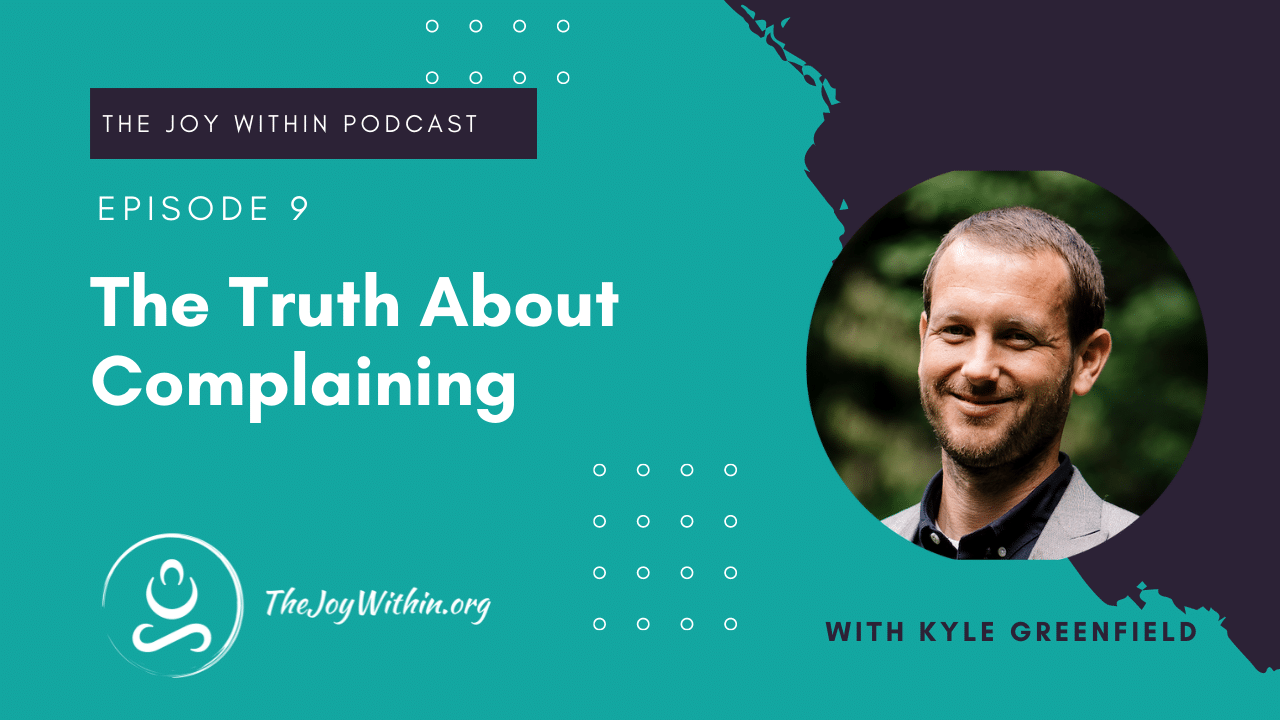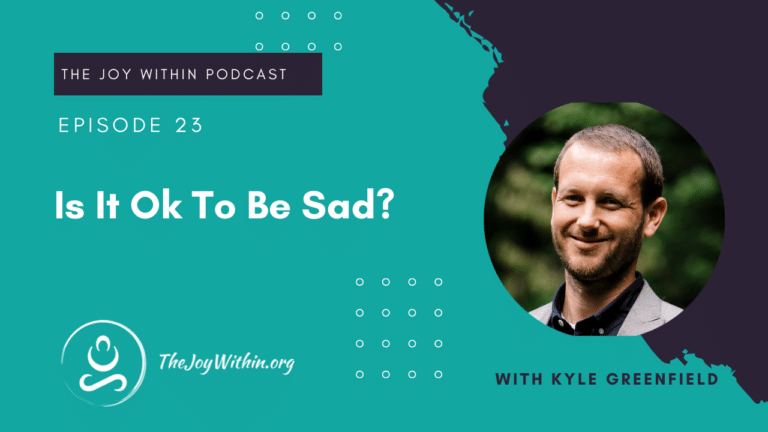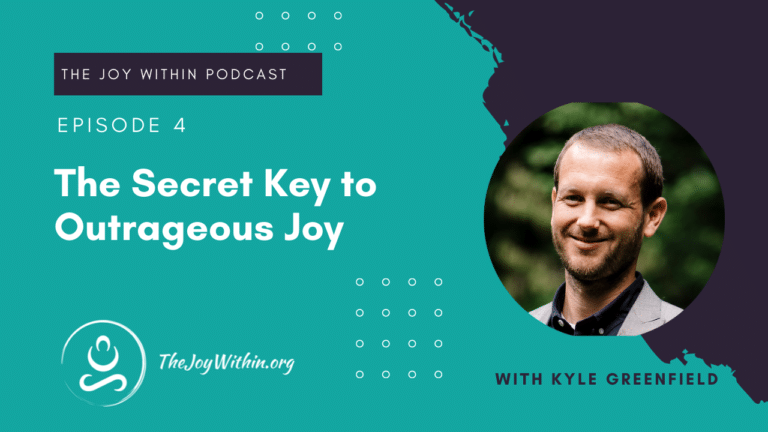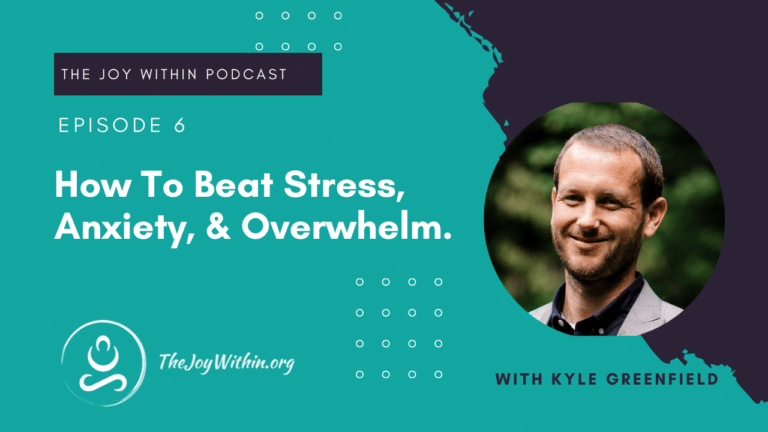Hello and welcome back to The Joy Within’s podcast. As you probably know by now, this week we’ve diving into the 5 ways negative thoughts are secretly controlling your life and what you can do to stop them.
So far we’ve looked at stress, doubt, and negative self-talk. Today we’re going to talk about external criticism.
By external criticism, I’m basically talking about complaining, but it also comes when we judge and negative critique others.
I think that, for the most part, external criticism is one of the more obvious categories of negativity. We are usually aware when we are complaining about things, but the challenge here is we often don’t realize just how negative those complains can be, both for ourselves and others. We tend to think that most complaints are harmless, but there are a few key problems with them.
Firstly, every thought we think helps to train our minds and tell our brains what we want to focus on. That means that every complaint we make not only forces your brain to focus on the negative aspect of what’s around you in that moment, but it also trains your brain to continue finding things to complain about in the future.This creates a downward spiral that can have a really negative impact on your fay to day life, and, even if you are aware of any one complaint you might make, you probably aren’t paying atteniton to the patterns those complaints are creating in your life.
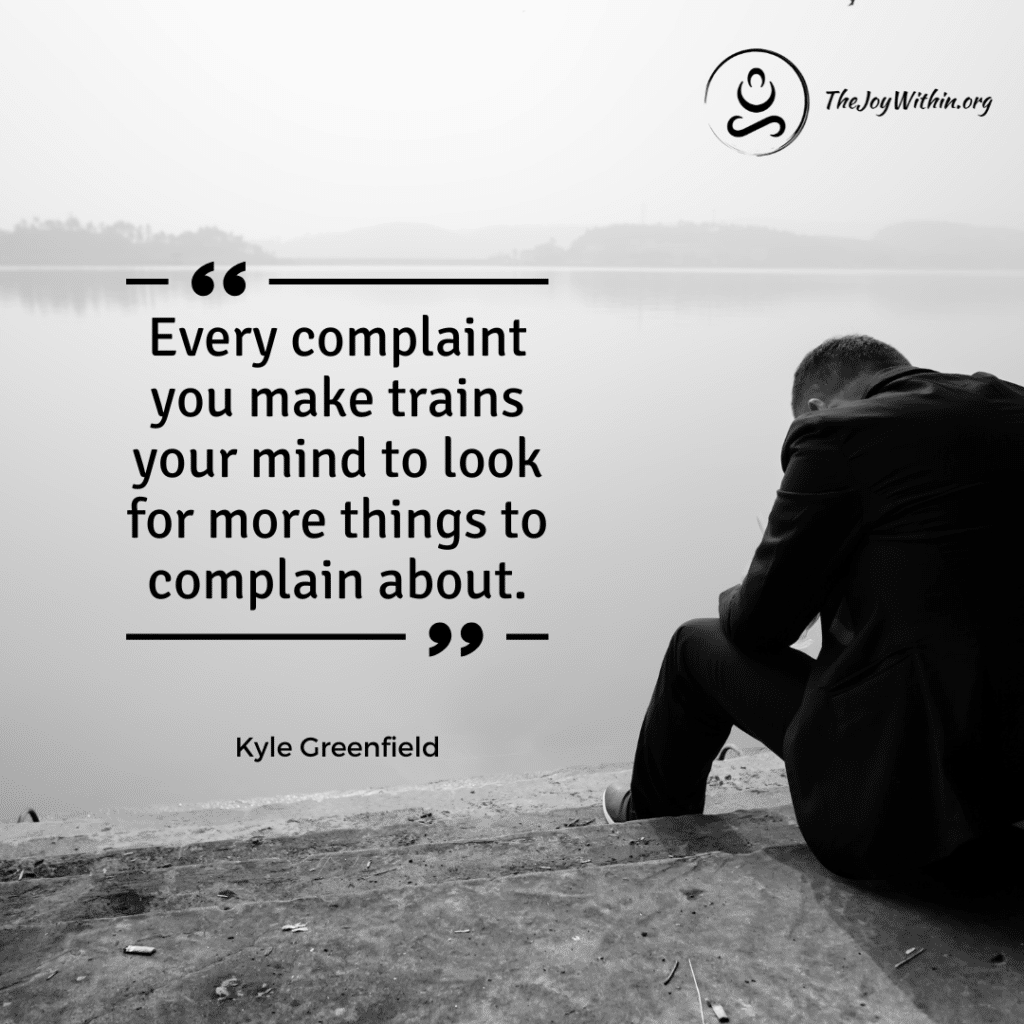
I like to think of complaining like eating fast food, If you do it once in a while, it’s still not healthy, but it’s not going to kill you. But, if you eat junk every day, for 3 meals a day, you’ll be on track for chronic health problems. In the same way, unconsciously allowing yourself to develop the habit of complaining will create a constant feeling of dis-ease.
The 2nd reason to pay attention to those little complaints is because every complaint, and every criticism – no matter how small it may seem – lowers your energy. That’s hugely important because your energy dictates how you perceive and respond to the world. When your energy is lower, you don’t think as clearly, you miss opportunities, and you simply aren’t able to function at the same level. And, the more you complain, the harder it is to bounce back into a better-feeling state.
Third: complaints almost always force you into a victim mindset. They place blame outside of yourself, which implies that the solution is also outside of your control. You think: if only someone else would be different, I’d be happy…often when you have little or no influence over tat person, organization, or situation. Over time, this can create a feeling of learned helplessness.
And, the last key challenge with complaining and other forms of external criticism has to do with the judgments you hold. All criticism is a reflection of your inner judgments – the beliefs you have about what “should” be. We all have these beliefs and judgments, but the problem with complaints and criticism is they attempt to assert that our judgment is “right” while the person, group, or situation we’re criticizing is “wrong.”
Our criticisms reflect our belief that our own, individual way of thinking is the only “correct” way of thinking. This creates conflict, both with the situation at hand, and within ourselves, as we struggle to reconcile our inner beliefs with a world that appears to contradict those beliefs.
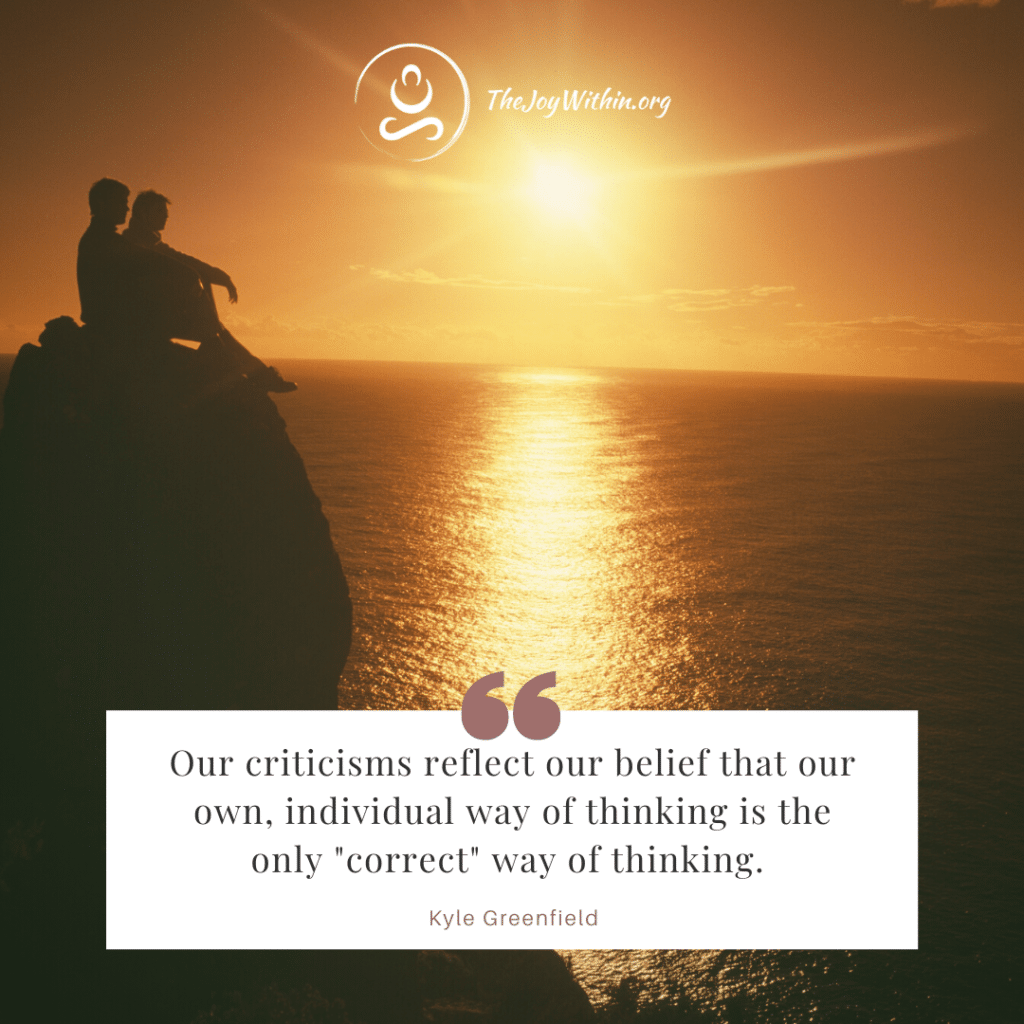
But, the flip side of these judgments is that – if we can recognize them – they offer us a path out of the critical spiral. If we allow our complaints to point us towards those judgments – just as we talked about letting doubts point the way towards our limiting beliefs – we can shine a light on them, and better decide if and how they’re serving us.
If we think in this way – if we’re aware of our judgments before we complain about something – we can just ask: would I rather be right or be happy? Would I rather enjoy what is here, or get upset about what think should be, but isn’t? Is this judgment I hold helping me to be happy, in this moment?
Asking these types of questions can help you eliminate complaints and criticisms really, really, quickly. It doesn’t have to be hard, but it does take a little practice. It requires a process of centering, building self-awareness, and then deliberately choosing a better thought.

